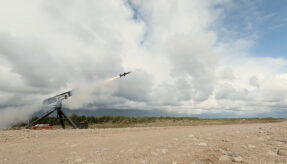
From supercharged 5G systems to a funding boost for local space clusters, new projects have been announced by the UK Space Agency, as figures show growing dependence on satellite technologies.
As set out recently in the government’s Industrial Strategy, demand for space-based and space-enabled capabilities is growing fast globally.
New figures, released on the opening day of the UK Space Conference in Manchester, confirm the nation’s increasing dependence on space. Space and satellite services are now estimated to support wider industrial activities worth £454 billion to the economy, or 18% of GDP. This is an increase of £90 billion on the previous year.
The government has identified satellite communications as one of five national space capability priorities, and the UK Space Agency has awarded four new projects £4.5 million to push the boundaries of satellite-based 5G and 6G systems.
Among these, MDA Space UK’s SkyPhi mission aims to deliver 5G and 6G connectivity capabilities directly to devices via low Earth orbit satellites. Orbit Fab’s Radical project is focused on developing in-orbit refuelling systems for telecommunications satellites. SSTL’s lunar communications system will enable deep-space communications capabilities, while Viasat’s hybrid GEO-LEO network is designed to provide global 5G Direct-to-Device coverage.
These new projects aim to enhance satellite performance, reduce infrastructure costs, and position the UK at the forefront of next-gen connectivity.
An additional £1.6 million will go to the UK’s space cluster network to stimulate innovation and economic growth. This funding will enable space clusters to collaborate in areas of shared capability, supporting space companies to forge stronger local partnerships and take advantage of expertise across the whole of the UK, supporting future growth.
With more than 55,000 people employed by the space sector across the UK, and a further 81,000 jobs in the supply chain, there is significant potential for the sector to drive economic progress across the country.
Space and Telecoms Minister Sir Chris Bryant said: “The innovations on display at the UK Space Conference demonstrate our strengths in key technologies that will shape Britain’s future, from seamless connectivity and data services to advanced manufacturing and launch.
“With satellite technologies supporting more than £450 billion in annual economic activity, and crucial to climate monitoring and national security, it’s vital that we are coordinating right across Government to unlock space’s incredible potential. We’re committed to working closely with this vibrant sector to accelerate our Plan for Change.”
The UK Space Conference opens its doors in Manchester today, convening leading players in the UK space sector and beyond to discuss future growth plans and renew the sector’s focus on generating economic growth and advancing national security goals.
Space Sector Growth and National Capabilities
The latest Size and Health of the UK Space Industry report, which analysed the 2022/23 financial year, shows the number of space organisations grew to 1,907, and employment increased by 7%. This is despite the wider economic challenges of that time and increased competitive pressures in the sector, particularly in the satellite communications market.
These challenges underline the importance of taking a more strategic approach to public space investments, with a renewed focus on the space capabilities necessary to drive economic growth and national security.
Analysis shows that UK Space Agency activity catalysed a total of £2.2 billion in investment and revenue in the UK space sector in the last financial year. A new report, also published today, shows that every £1 public investment in ESA programmes leads to £7.49 directly benefiting the UK economy.
Earlier this month, the UK Space Agency initiated a £75.6 million tender for the nation’s first mission to actively remove defunct satellites from orbit. This process will secure home-grown expertise and strengthen UK leadership in In-orbit Servicing, Assembly and Manufacturing, another key capability area.
If you would like to join our community and read more articles like this then please click here








